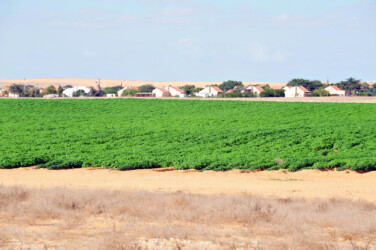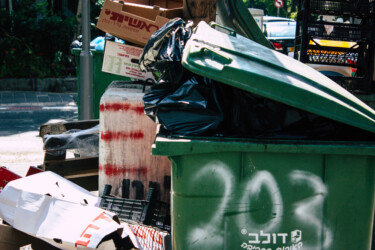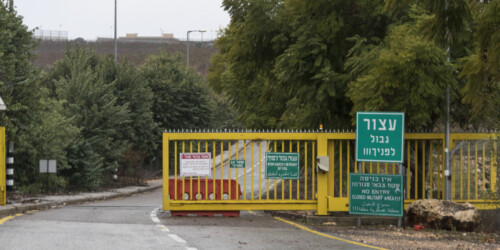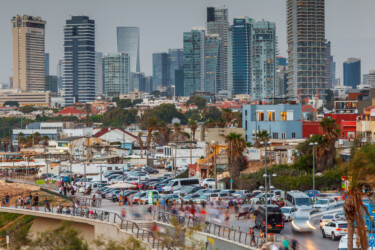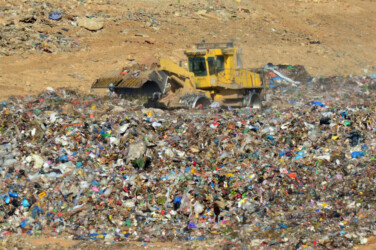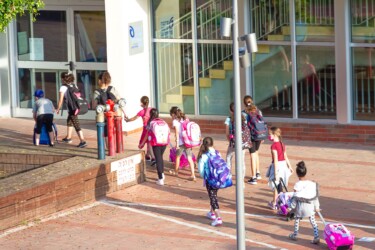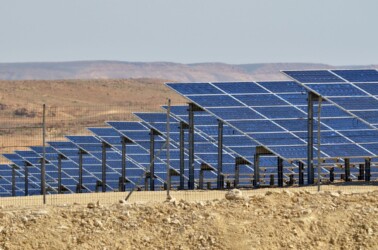Connect to schedule an interview
+972.4.829.2329
Neaman in the media
How to rebuild the northern region of Israel?
Prof. Meirav Aharon Gutman discusses the concepts of GALILEAN CONSCIOUSNESS and COLLECTIVE TRAUMA, noting that 61,000 residents have been evacuated. Those remaining are also suffering from the situation. The crisis has severely impacted education and culture in the north, even in communities that were not evacuated, and there is no clear timeline for residents to return home. Prof. Aharon Gutman suggests a new social deal to leverage the opportunities in the northern region for urban renewal and optimal growth.
From Crisis to Resilience: Principles for Sustainable Development of the Western Negev
Short Policy Brief, as published in the Spring 2024 issue of the journal “Ecology and Environment” on “Restoration and Sustainable Development of the Western Negev”
Hold Your Nose: Israel’s Capital City is Getting Stinkier
A 2023 report by SNI warns that the waste crisis in Israel is urgent.
The acute waste crisis requires the urgent promotion and implementation of a national plan for the benefit of public health, as well as closing gaps between the policy of the Ministry of Environmental Protection and the actual performance.
A Study Revealing the Depth of Harm to Evacuees from the North
A Samuel Neaman Institute survey of 340 residents from the northern border paints a grim picture of the employment, education, mental, and family situation of those who were dispersed to hundreds of points across the country.
“The reality that has been created for them signals to them – the government does not recognize your story, it is possible without you,” says Prof. Meirav Aharon-Gutman.
Working, shopping, and sleeping – all underground
The realities of scace space that Israel faces should lead to a conceptual change.
In the report “Dense Future – Israel 2050,” Prof. Rachelle Alterman, a senior research fellow at the Samuel Neaman Institute, wrote: “Israel is significantly behind in preparing for the use of underground space, in its overall infrastructure planning as well as in building specific facilicies infrastructure underground. Due to the rapid population growth, many types of public urban activities will have to moved underground at a scale that will change cities beyond recognition. Part of this process is not at all negative, since it will enable to preserve more overground openspace. This transformation in conceptuion should have been carried out long ago.”
From Sugar Slavery to Automobiles: Israelis’ Economic Addictions
Even in 2024, one of our most serious addictions is “‘waste”. Israel is suffering from a severe waste crisis that is causing air pollution, intensive land use and greenhouse gas emissions.
The article calls for attention to the findings of a report by the Samuel Neaman Institute for National Policy Research, which states that the waste problem is one of the most urgent in Israel but is being neglected by the government.
Like in the army, also in the Ministry of Education, emergency plans remained in the drawer in real time
The article addresses the disturbing findings that emerged during the preparation of a report on emergency education.
The report, written by Professor Orit Hazzan, found that despite the existence of emergency plans in the Ministry of Education, they were not implemented at all in real time during emergency events.
The article calls for the implementation of the recommendations of Professor Hazzan’s report, arguing that this is a crucial step in ensuring the readiness of the education system to cope with future emergencies.
Prof. Ofira Ayalon discusses a temporary peak of electricity production from renewable energy sources
Prof. Ofira Ayalon on ‘Three Who Knows’: New Israeli record for electricity production from renewable energy
Startup Companies in Times of Crisis – Insights
The latest report from the Samuel Neaman team offers valuable insights gathered from a comprehensive study involving in-depth interviews with Israeli startup company managers across diverse sectors. The aim was to uncover the challenges they faced and
The Gray Area Between Green and Red: Cost-Benefit Considerations of a Polluting Company’s Contribution to Environmental Research or Academic Projects
Prof. Ofira Ayalon and Prof. Adi Wolfson address the benefits and drawbacks as well as possible greenwashing of polluting industries donating money to the academia


